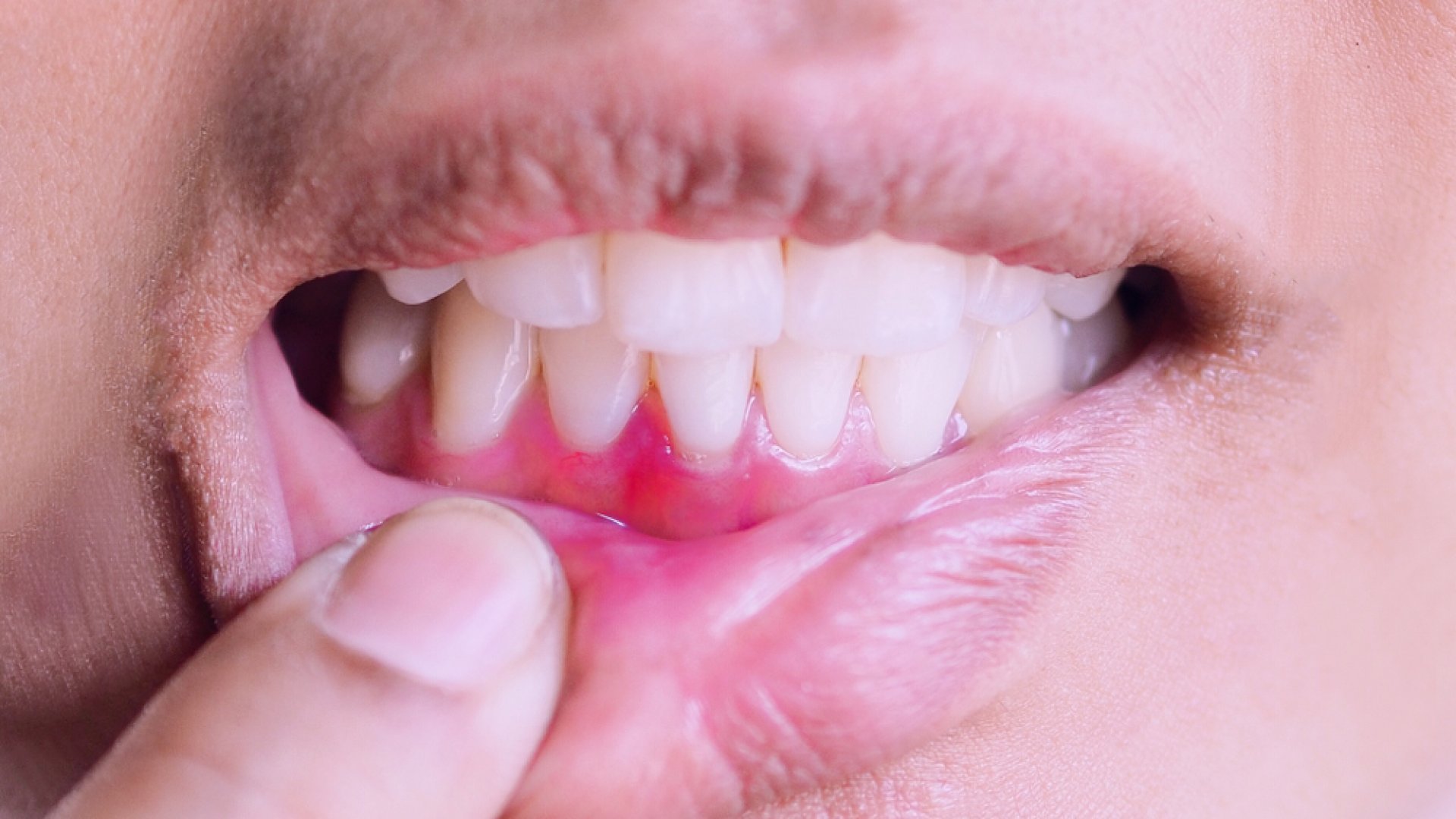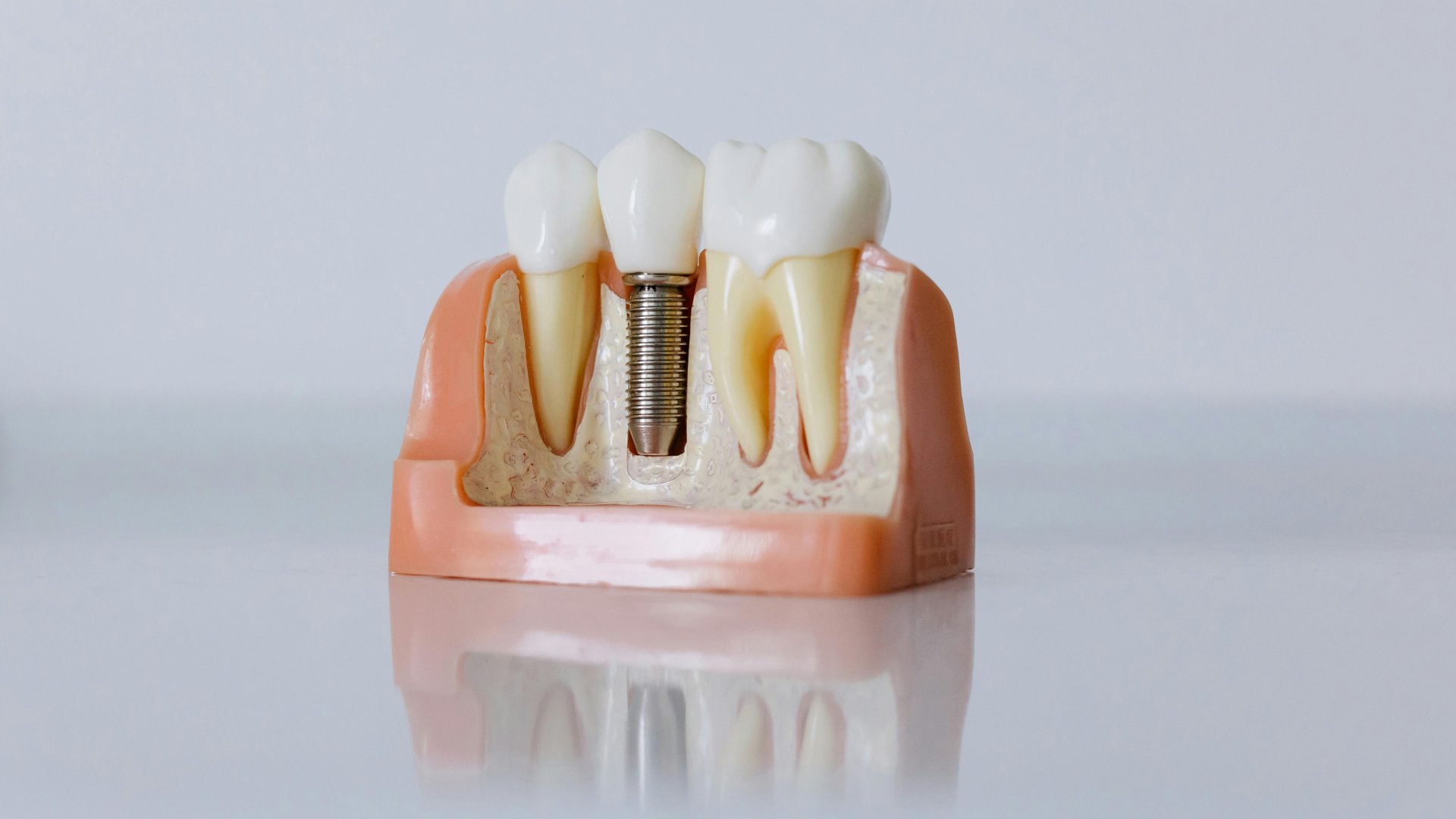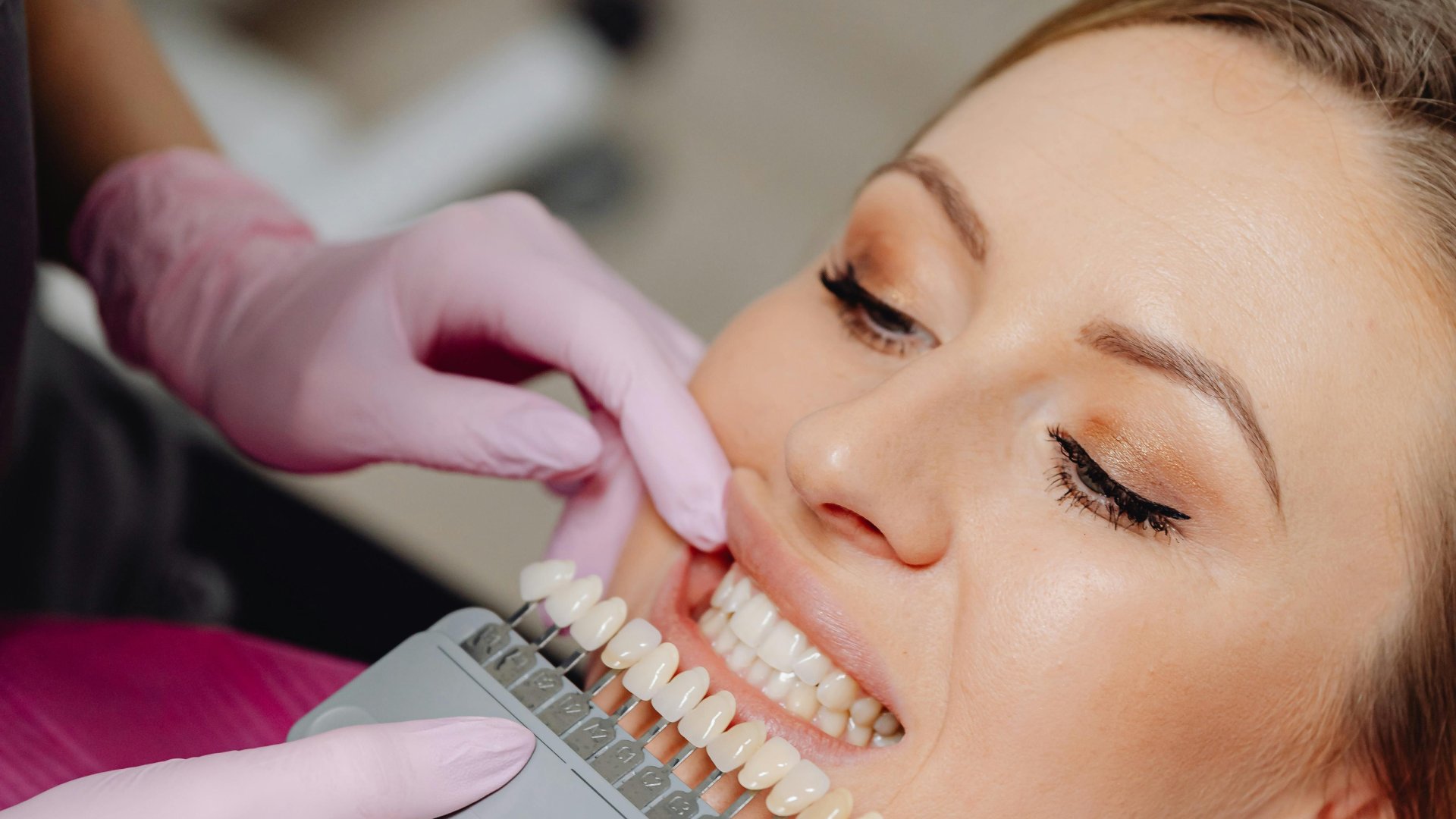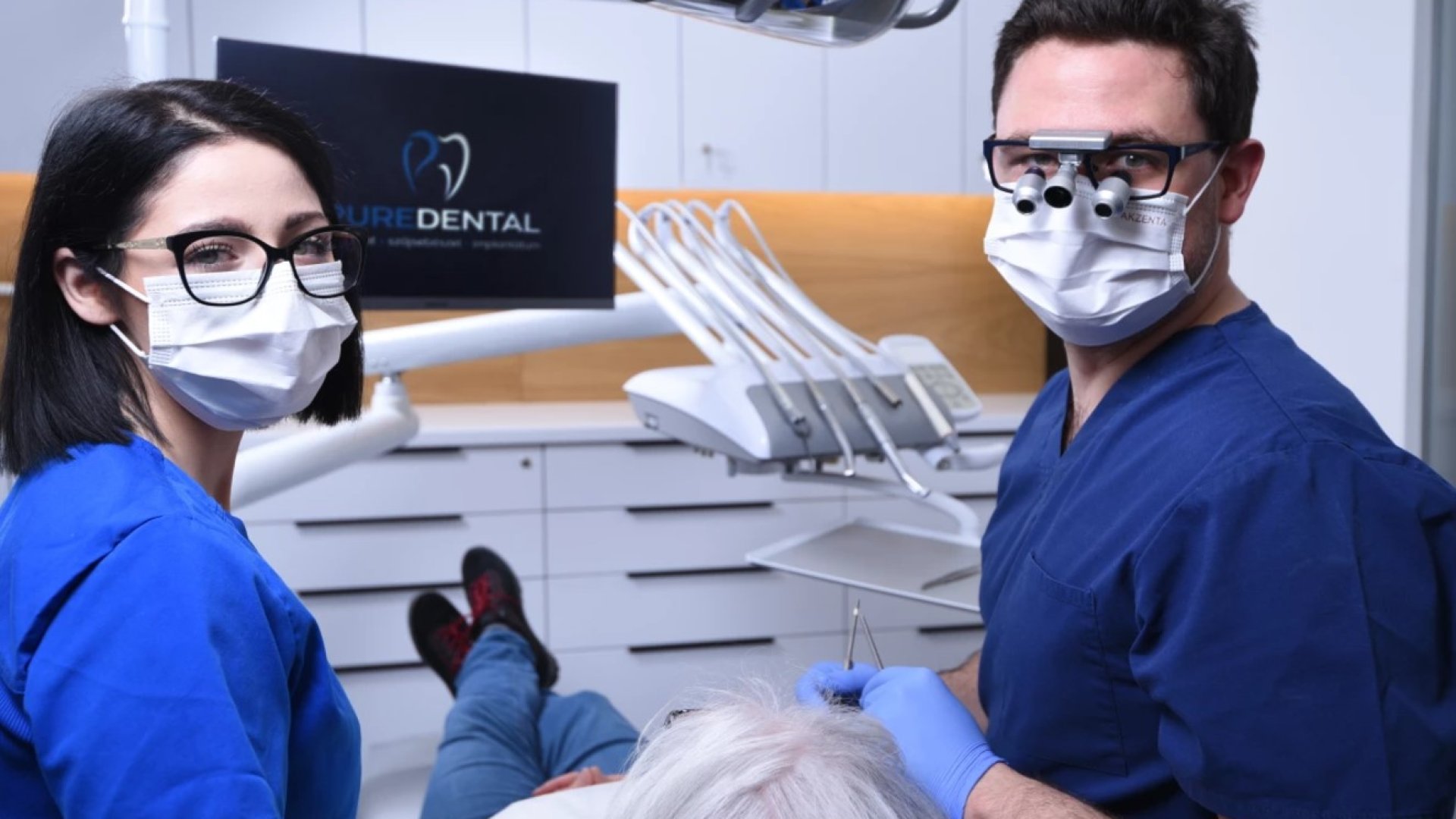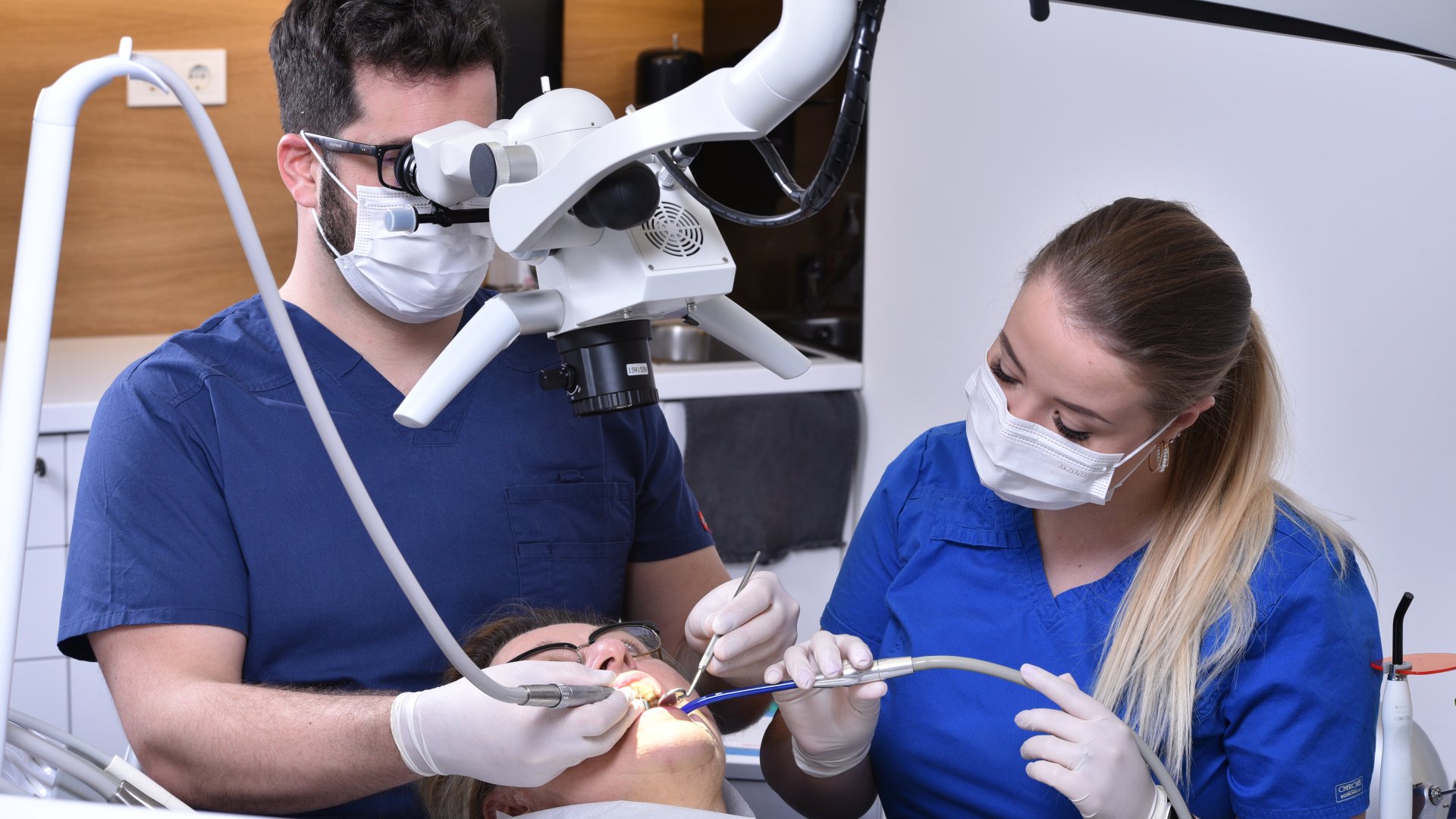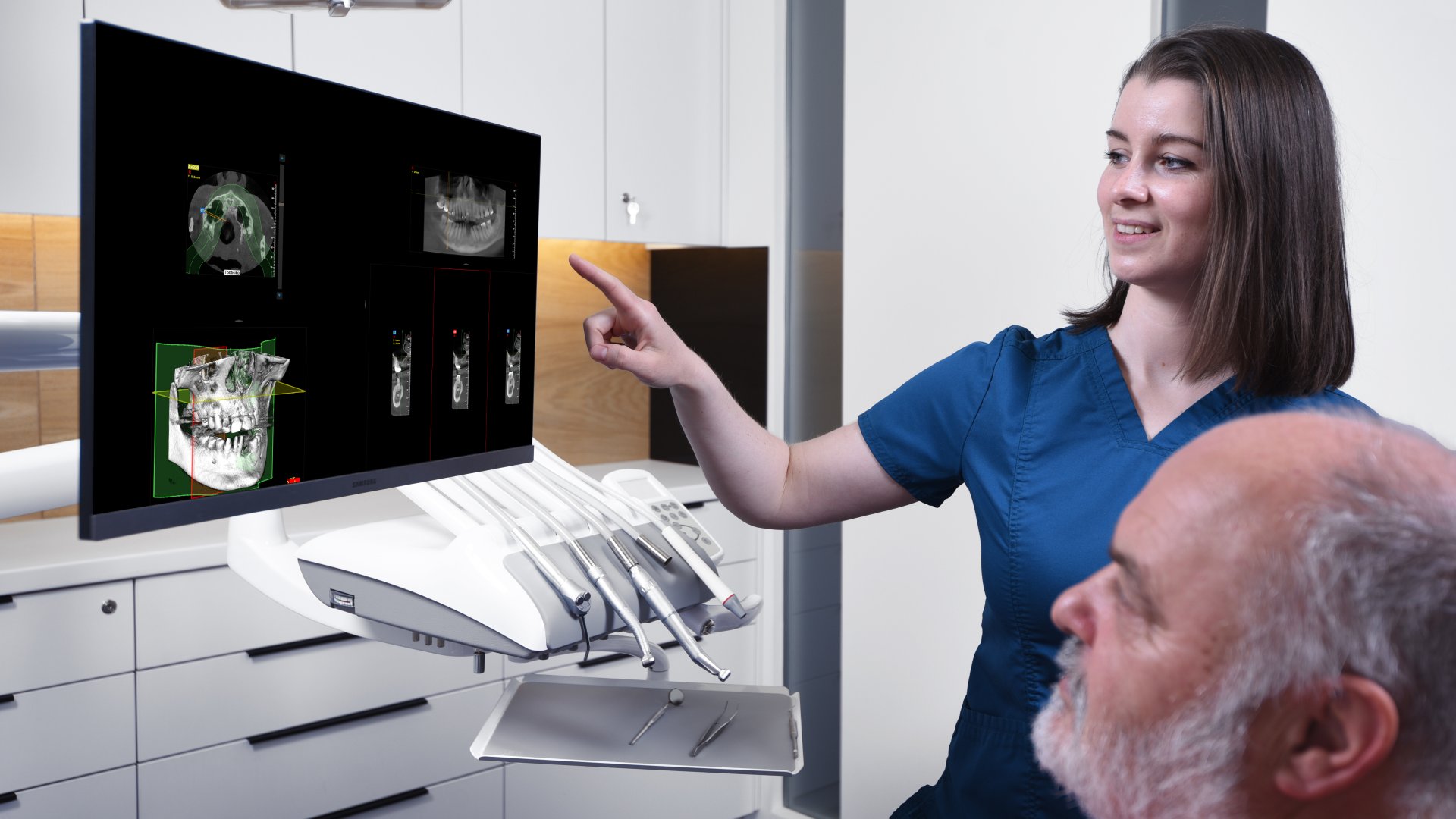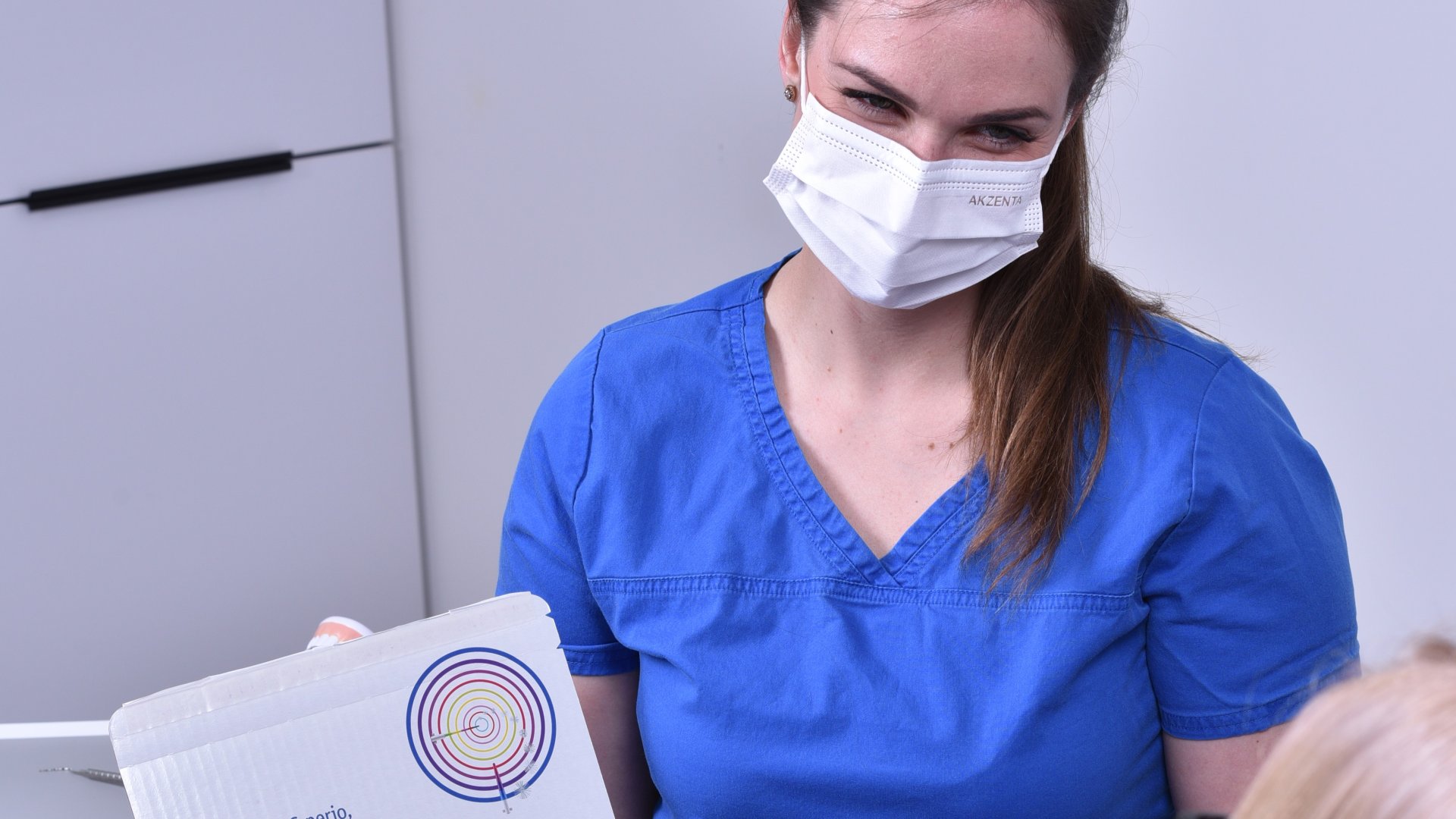Treatment of periodontal disease
Periodontal disease is often treated with curettage and deep cleaning, but it is important to determine the cause of the dental problem and the exact type of periodontal disease. We will help you with this below!

Periodontal disease treatment: What is periodontitis?
The term “periodontitis” means that the supporting tissues around the tooth are inflamed. Microorganisms such as bacteria adhere to the surface of the tooth and the pockets surrounding the tooth and multiply. As the immune system responds to the infection, toxins are released and acute or chronic inflammation occurs around the tooth in the gums and later in the bone.
Periodontitis, also known as gum disease, is a common infection that damages both the gums and bone tissue. Without treatment, the gums and/or bone around the teeth slowly and gradually disappear, causing the teeth to become loose and, in advanced, untreated cases, fall out because there is nothing to hold them in place.
For this reason, it is very important to treat periodontal disease as early as possible to eliminate inflammation and save both the teeth and the surrounding tissues.
Lack of treatment for periodontal disease
Untreated periodontal disease eventually leads to tooth loss, which is caused by the tissues supporting the teeth essentially weakening or dying. In the treatment of severe periodontal disease, bone replacement may be necessary, as not only the gums but also the bones have been damaged by the disease. The bacteria that cause periodontal disease can easily spread throughout the body via the bloodstream, so not treating periodontal disease can increase the risk of stroke, heart attack, and other health problems. This phenomenon is called systemic disease.
Causes of periodontal disease
The most common cause of periodontal disease is plaque and tartar that accumulate on the surface of the teeth and between the gums. Tartar irritates the gums, causing inflammation, which can lead to periodontal disease, which affects the bone tissue and is much more difficult to treat. The best way to prevent periodontal disease is to pay attention to proper oral hygiene. This can be achieved by supplementing our home oral care routine with dental floss and mouthwash, and by visiting our dentist regularly, at least once or twice a year, for dental hygiene treatment.
Other causes may include:
Inadequate fillings or dentures
Vitamin deficiency, nutritional disorders
Certain medications
Allergic reactions
Stressful lifestyle
Smoking
For successful treatment of periodontal disease, it is essential to make a correct diagnosis, i.e., to identify the exact causes of the periodontal disease.
If you would like the help of PureDental's specialists, please do not hesitate to contact us.
Periodontal disease treatment at PureDental
We always start the treatment of periodontal disease by identifying the underlying causes and making a correct diagnosis. We then clean the teeth of accumulated bacteria, plaque and tartar, removing any factors that irritate the gums. Treatment of periodontal disease is then carried out according to the causes of the periodontal disease and the severity of the dental problem. In most cases, we perform periodontal or oral surgery procedures such as curettage (deep cleaning).
After removing the bacteria and tissue causing the inflammation, in order to prevent reinfection, the treatment of periodontal disease requires a more complex approach. For this reason, replacing old, inadequate fillings or restorations, or using bone grafting, dental implants or bridges may also be necessary for long-term healing.
If you would like us to detect and treat your periodontal disease in time, visit our team of experts and we will help you achieve a healthy smile!
Make an appointment at our clinic by filling out the form below!

